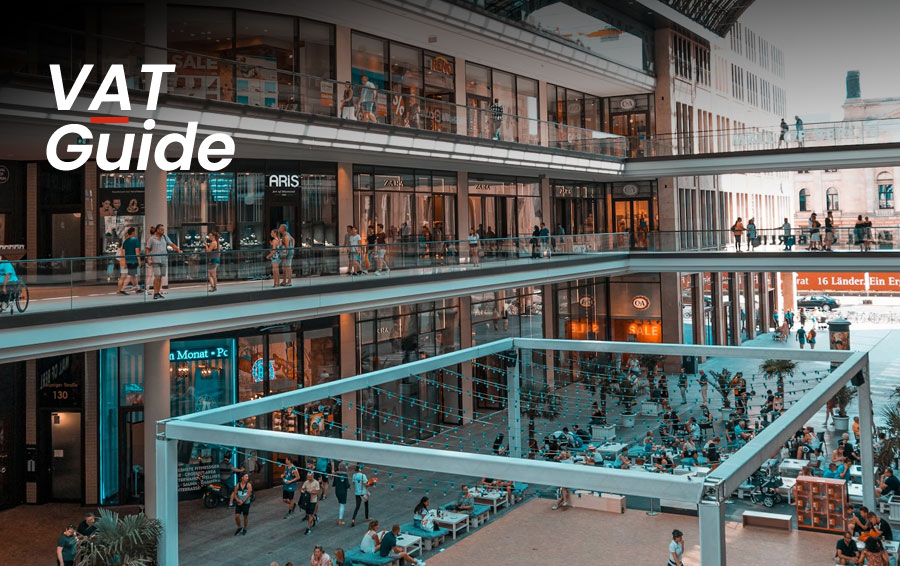Germany’s controversial past, especially the World War I and II, might continue to stay relevant for years to come. But that does not stop tourists from around the globe from exploring its rich culture and stunning scenery. From the Cologne Cathedral and Neuschwanstein Castle to the Brandenburg Gate and Berlin Wall, the country is brimming with iconic landmarks that precisely tell exquisite stories of their own.
But it is not just the sightseeing that is at play here, as Germany is also known for its unique shopping hotspots, to satisfy the shopping aficionado in you. From the Mall of Berlin to the Europa Passage, you can now finally grab that much-anticipated item that you always wanted before heading home. And to support the same, Germany has introduced ‘tax-free shopping’ under its travel guidelines. So, if you have recently visited Germany and purchased any goods, then you are liable to get a VAT (Value Added Tax) refund. To learn more, continue reading our guide.
How Can You Claim Your VAT Refund

The process of tax-free shopping in Germany works in a seamless manner, where you have to first pay the full purchase price (including the turnover tax), even if you decide to claim tax exemption for your purchases. After that, once the retailer receives proof that the goods purchased have been properly exported to a non-EU country, the turnover tax will be reimbursed to you.
To ensure that the reimbursement process is completed properly, as the buyer, you must submit the ‘Export And Procurer Certificate For Turnover Tax Purposes In The Context Of Non-Commercial Travel’ form. This form can be obtained either from the retailer or you can download it and carry it with you. Keep in mind that all the information in the form mentioned above must be filled in by the seller or retailer. To start the refund process, follow the suggested steps provided below.
- First, you need to download the refund form here.
- Once downloaded, proceed to print it out and take it with you on your shopping journey.
- After you make a purchase from a German retailer, hand over the printed form for the seller or retailer to fill it out.
- Collect the filled-out form and keep it with you safely.
- On the day of your departure, showcase the form along with the goods to the German customs authorities.
- Once you receive your clearance, you take the goods out of the country without any hassle. Additionally, you will receive reimbursement of your turnover tax in due time.
What are the Other Ways to Claim
In any case, if you are unable to procure or present the ‘Export And Procurer Certificate For Turnover Tax Purposes In The Context Of Non-Commercial Travel’ form, you can still obtain a refund of the turnover tax paid by presenting the invoices provided by the retailer or the seller for the purchased goods to the customs authorities on the day of your departure. However, the invoices must show the name and address of the supplier, the commercial denomination as well as the quantity of goods exported, and a valid stamp.
What are the Requirements
Germany’s ‘tax-free shopping’ terms state that if you are a non-EU resident and are able to prove the same by providing the retailer or seller with your identity documents, such as your passport, then you will be able to get a refund of the turnover tax paid on the purchased items. Keep in mind that your nationality remains irrelevant when obtaining the tax-free benefits. For instance, a Swiss national living in Spain cannot shop tax-free in Germany. However, a German national living in India could.
Additionally, it should be known that Northern Ireland is still considered a part of the European Union (EU), which means that no VAT-free shopping is possible for Northern Ireland travelers. However, travelers from Great Britain (which includes Wales, England, and Scotland) who have proof of residence in a non-EU member state (such as a valid UK driving license) can opt for the tax-free benefits.
The terms and conditions of ‘tax-free shopping’ further state that if you are living in Germany as a non-EU resident, then your residence permit must not be more than three months. And you will be exporting the purchased goods (for which VAT refunds have been applied) via your personal baggage within three months as well. This means that any baggage that is sent in advance or has been forwarded will not meet this requirement. And lastly, the total value of the goods (including VAT) must be more than 50 euros.
Apart from the above-mentioned rules and regulations, international travelers must take note that only the customs authorities have the power to confirm whether the goods exported by a person are worthy of a tax-free claim and not the seller or retailer. And if you have any further queries or require assistance, then you can get in touch with the relevant customs authorities via email at enquiries.english@zoll.de.
Finally, there are a few exceptions imposed by the German government when it comes to enjoying the benefits of ‘tax-free shopping’ on goods and services as a non-EU resident. These include services that have been rendered in Germany (such as the purchase of train or bus tickets and hotel or restaurant bills), goods used for equipping private vehicles of any kind (such as exterior mirrors, bumpers, or first aid kits), and goods required for the maintenance or supply of a vehicle (such as oil or fuel).

